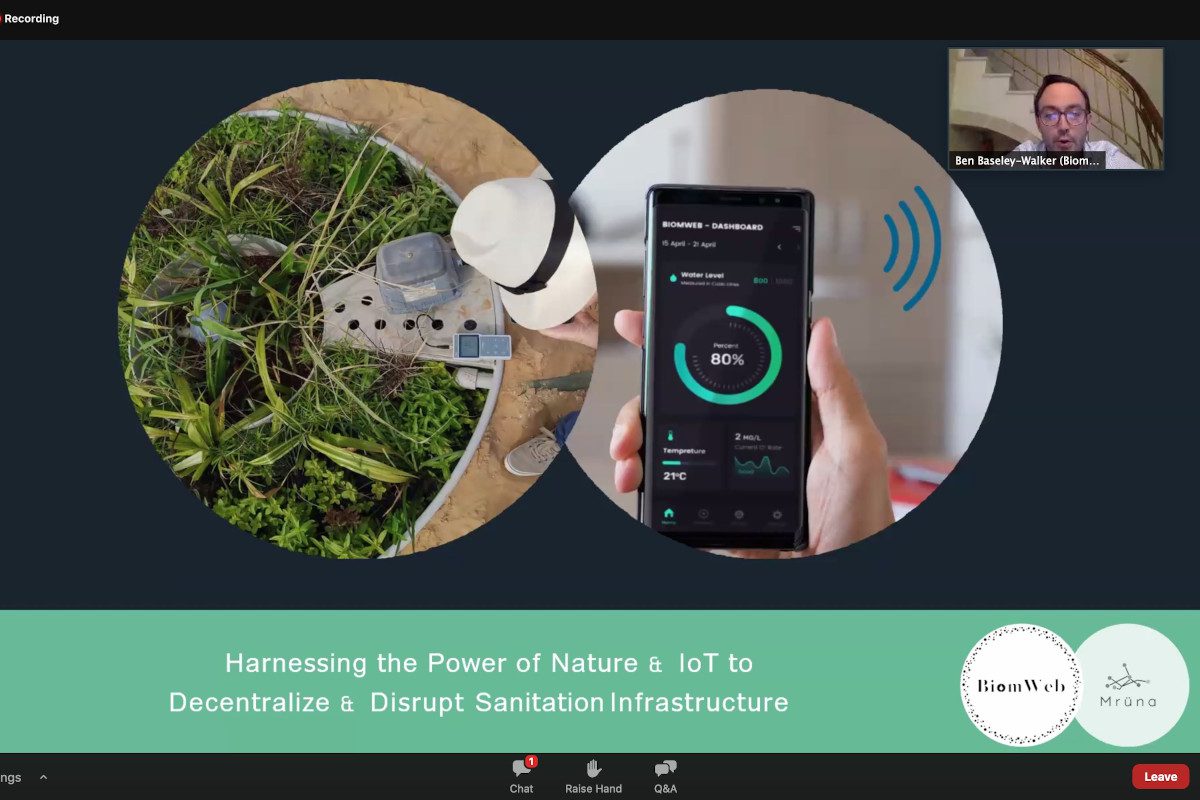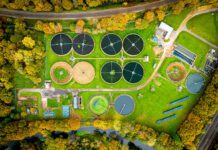
Lebanese tech start-up Mrüna has been deemed the winner of a new global innovation competition, InfraChallenge, run by infrastructure advisory group The Global Infrastructure Hub (GI Hub), which is based in Sydney.
The firm’s success followed a live pitch against nine other finalists from the UK, US, Sierra Leone, Australia, Mexico, Singapore and Spain.
Mrüna’s winning digital solution tackles the economic and social challenges of wastewater treatment with a decentralised nature-based system, BiomWeb. Using IoT, the solution treats wastewater onsite, negating the need to transport waste and recycled water, with a series of water tanks that imitate aquatic habitats found in nature, and seemingly without the use of added chemicals, desludging, or vast infrastructure investment. Mrüna believes that BiomWeb will be adopted by refugee camps and informal settlements, as well as private and public sectors across the world.
“We are so honoured to be the 2020 InfraChallenge winners and to be representing innovation from Lebanon. The start of Mrüna and BiomWeb was about us looking at the pollution in our rivers and the impact of sanitation on food chains and asking how we could start to do things differently. We’ve strived to have a nature-based system that is simple and accessible to all income brackets, and we are really excited to work with GI Hub and MIT Solve to push it out globally,” Co-Founder of BiomWeb, Ben Baseley-Walker said.
It is said Mrüna’s solution will help to accelerate the delivery of the United Nations Sustainable Development Goal 6 that pursues availability and sustainable management of water and sanitation for all.
“The innovative and practical solutions submitted by our top 10 finalists were so impressive and I wish them all the best in progressing their ideas. We were looking for real ideas with real impact and we got them. I congratulate Mrüna on their wastewater solution and I’m so proud that InfraChallenge will help to make sanitation more accessible for all. Technology is the new frontier for infrastructure and its importance as a driver for real change and transformation has accelerated since COVID-19.
InfraTech has a profound purpose in ensuring the continued operations of critical infrastructure and it will play a key role in economic recovery around the globe,” said the GI Hub’s CEO and InfraChallenge judge, Marie Lam-Frendo. The host country for InfraChallenge 2020 was Spain but the event was moved online due to the COVID-19 pandemic.
“Based on the Spanish experience, and what has become evident with the pandemic, better monitoring of infrastructure through new technologies greatly improves logistics and control over the whole supply chain. This, in turn, enables better decision making in transport planning. In a nutshell, InfraTech is a lever that is allowing us to move towards safer, more sustainable and better-connected mobility,” the Secretary General of the Treasury and International Financing at Spain’s Ministry of Economic Affairs and Digital Transformation, Carlos San Basilio said.
As the winner of the InfraChallenge, Mrüna will receive a $AUD 50,000 funding package to help implement their pitch, ongoing support from GI Hub and MIT Solve to further develop their solution, as well as exposure to the G20’s Infrastructure Working Group.GI Hub was established by the G20 and works to drive an ambitious agenda on sustainable, resilient and inclusive infrastructure through action-oriented programmes that supports the G20. In August this year, the G20 Finance Ministers and Central Bank Governors endorsed the Riyadh InfraTech Agenda which aims to harness technology to deliver quality infrastructure investment; promote inclusive, accessible, sustainable, and affordable infrastructure in view of lifecycle costs; mobilize private-sector financing; and support the development of infrastructure as an asset class.







